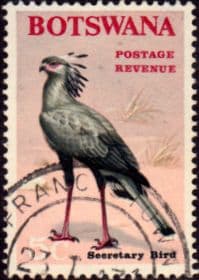Discovering Botswana: Wildlife, Culture, and Economy

Introduction
Botswana, located in the heart of Southern Africa, is renowned for its captivating wildlife, vibrant culture, and economic development. As the country is a prime destination for eco-tourism and adventure seekers, understanding its current events and the significance of its natural resources is essential. Recent developments highlight not only Botswana’s commitment to preserving its natural heritage but also its economic growth, which is primarily driven by tourism and diamond mining.
Wildlife and Conservation Efforts
Botswana is home to some of the most impressive wildlife reserves in the world, including the Okavango Delta and Chobe National Park, making it a hotspot for tourists. The government has emphasized conservation and anti-poaching measures to protect endangered species, such as elephants and rhinos. A recent report from the Botswana Tourism Organisation indicates a resurgence in elephant populations, largely attributed to successful conservation initiatives and community involvement.
Cultural Heritage
The rich cultural heritage of Botswana is another cornerstone of its identity. The country celebrates over 10 ethnic groups, each contributing unique traditions, languages, and festivals. Recent efforts to promote cultural tourism are being made, with initiatives aimed at showcasing traditional dances, crafts, and cuisine. These projects are designed not only to preserve Botswana’s cultural legacies but also to provide economic opportunities for local communities.
Economic Developments
Botswana’s economy remains one of the strongest in Africa, largely due to its diamond industry, which accounts for a significant portion of its GDP. However, the government is increasingly looking to diversify its economy through tourism. Investments in infrastructure, such as new lodges and improved transport links, are being made to enhance the tourist experience. The recent signing of partnerships with international travel agencies is expected to boost visitor numbers, which in turn will contribute to job creation and local economies.
Conclusion
As Botswana navigates its path towards sustainable development, it stands out as a model of how the juxtaposition of conservation, culture, and economic growth can be achieved. With continued focus on wildlife preservation and cultural heritage, alongside strategic economic planning, Botswana is poised to thrive in the coming years. This makes it an essential case study for other nations striving towards a balance between development and sustainability, providing a glimpse into the future of tourism and conservation in Southern Africa.
